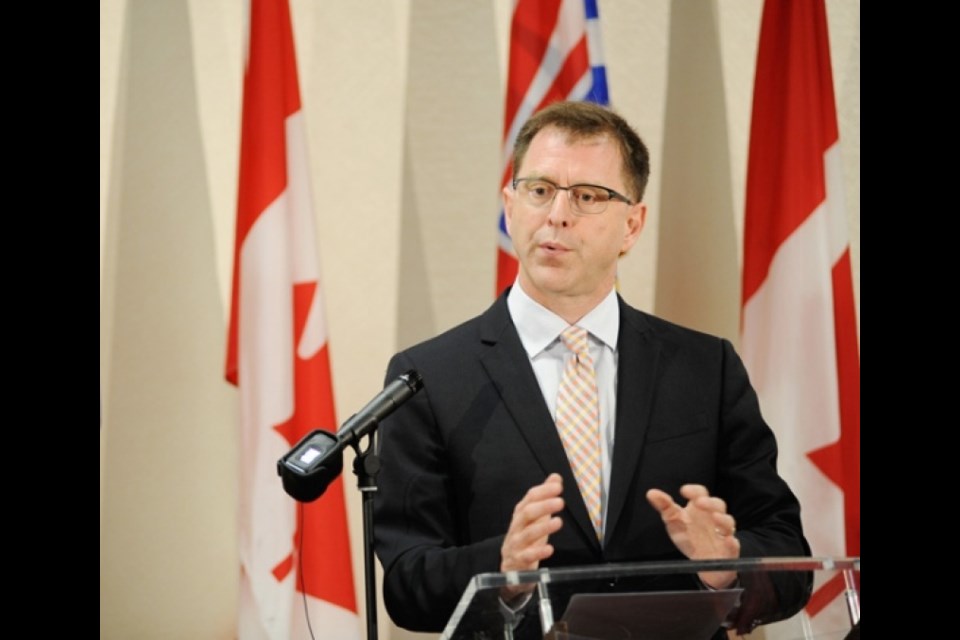As part of a larger plan to expand and streamline seniors care, privately run home-support services on southern Vancouver Island and in Metro Vancouver will come under the control of health authorities.
The Vancouver Island Health Authority will be responsible for publicly funded home-support service delivery on southern Vancouver Island and the Gulf Islands, taking over from non-profit Beacon Community Services. In the north Island, home support is already delivered by Island Health.
“Home support over the last number of years has been cut and on the side, and if you are going to make it central to team-based care, you can’t have it delivered — even in the same region — in different ways and different places,” said Health Minister Adrian Dix.
“Our goal is that existing clients won’t see any change except to the extent that we are bringing in new resources and their services will improve or increase in many cases.”
Starting Nov. 1, Island Health will assume responsibility for delivering home-support services to an additional 2,600-plus clients.
Island Health said Beacon Community Services staff affected by the change will be offered the opportunity to join the health authority, continuing to receive “fair and reasonable compensation and benefits.” Requirements in union agreements will continue to be in effect.
Health authorities will “improve service and bring in a little more coherence to home-support policies up and down the Island” ahead of “a significant expansion of home support,” Dix said.
B.C. seniors’ advocate Isobel Mackenzie said the government has already announced funding to increase hours and scope of service, unrelated to home support moving to health authorities.
In September 2018, the B.C. government announced $240 million over three years to increase senior care.
With the change, the plan is to have one medical record for home-support clients and better co-ordination with other health-care workers
In January, Mackenzie reported 61 per cent of seniors entering residential care had not had any home support services in the 90 days prior.
She wants that changed.
Her report found home-support hours decreased last year in the area served by the Vancouver Island Health Authority.
Home support offers seniors and people with disabilities services that allow them to live at home independently, rather than being forced into residential care. Care includes help with bathing, dressing and grooming, as well as support and relief for a client’s primary caregiver. Mackenzie would like to see housekeeping added.
Island Health’s agreement with Beacon Community Services ends this year and the contracts for all private operators are up for renegotiation in 2020.
“This is the time to review it,” Dix said.
Daniel Fontaine, CEO of the B.C. Care Providers Association, called Wednesday’s announcement “a real setback,” a move “that’s based on ideology, not evidence.”
Fontaine said there was “zero” consultation with the private sector regarding the shift.
B.C. seniors want more help with daily needs “such as a getting a cup of tea, doing their laundry, or help with medications,” he said, arguing the changes will only drive up costs and get seniors no closer to more care hours.
“This decision to bring them back into the government-run operations is fraught with risks, and makes no practical sense from the standpoint of seniors,” said Fontaine.
B.C. has both health authority home-support workers and private contractors — for-profit, non-profit and community organizations — who deliver the same service.
On Vancouver Island, 47 per cent of home support is delivered by the health authority. In the Fraser Health region, it’s 37 per cent, and in the Vancouver Coastal Health region, it is 26 per cent.
Bob Boulter, CEO of Beacon Community Services which co-ordinates about 3,000 home-support visits daily, said Beacon will continue to deliver its charitable community services and programs, several of which also support seniors. Beacon will also continue to contract with Island Health for dementia housing, respite care and other seniors’ programs, said Boulter.
Beacon and Island Health said they will provide a seamless transition, offering the same level of care.
The B.C. Care Providers Association predicted care-aide numbers will drop in the transition, however, because some people will not want to work for the health authority. But Dix said he expects the numbers will remain the same if not higher.
Lynn Stevenson, the Health Ministry’s former associate deputy minister of health services, was appointed to oversee the transition, which will also occur in the Fraser Health and Vancouver Coastal Health regions.
• Clients and families with questions about the transition can contact Island Health’s Community Care Access line at 250-388-2273 or toll-free at 1-888-533-2273, or by email, [email protected]



